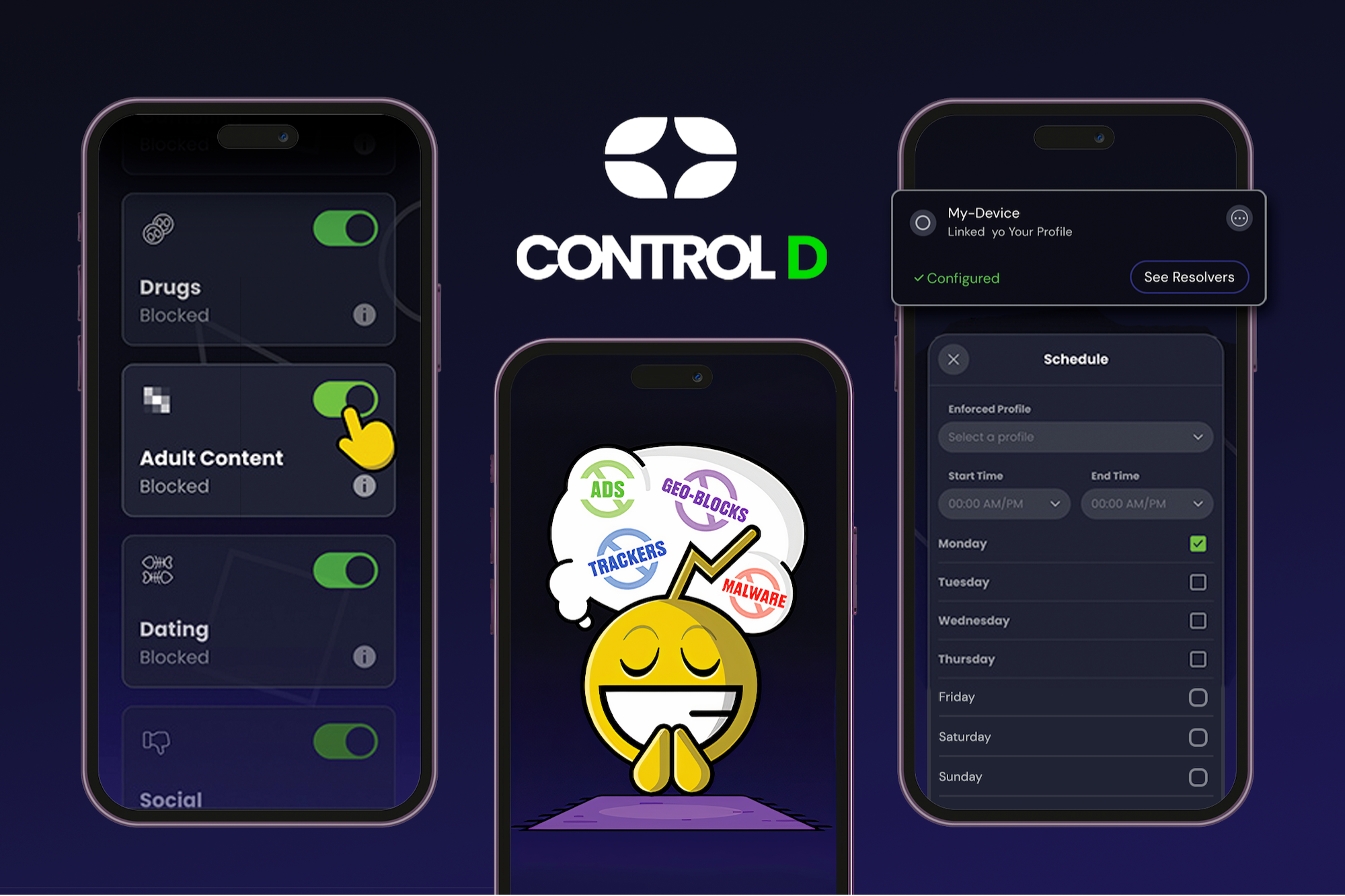AFFILIATE MARKETING
Teens are selling products on TikTok Shop between classes

High schoolers are testing out their social media marketing skills with a new side gig: TikTok Shop. Teens on the app are bringing in millions of views using the new feature, despite the fact that TikTok forbids minors from applying to the program.
NBC News identified six TikTok accounts that have published dozens of TikTok Shop videos over the past two weeks. The creators all identified publicly as under the age of 18.
In a statement responding to questions about the presence of teens on TikTok Shop, a TikTok representative said, “As TikTok Shop rolls out in the US, we continue to evolve our safeguards and are taking steps to address this issue.” TikTok asks users for their age when signing up for an account, which offers a loophole — kids can pretend to be older.
The findings are the latest demonstration of how users are quickly taking advantage of the relatively new TikTok Shop functionality to make money. The feature, launched in September, has rapidly gained popularity and TikTok has appeared to struggle to moderate how people are using it. It also demonstrates the rapid influence that TikTok Shop’s new system, which encourages the fast production of internet advertising by creators, is having on the internet.
One of the creators, who said on his profile (which had over 33,000 followers) that he was 16, made a TikTok Shop advertisement for $4 women’s leggings that said the wearer “may get pregnant” — a joke about how good the wearer would look in the leggings. In the video, the teen danced to “Billie Jean” (in which Michael Jackson sings, “But the kid is not my son … ”). Another video the same teen made advertising the leggings, in which he imagined a “10/10 baddie” wearing them, has over 1.1 million views.
In the two weeks since its debut, TikTok Shop has made major waves in the social media advertising scene, with the app becoming a conduit for a new type of commission-based marketing. With TikTok Shop, users can advertise nearly any product available through the app and get a cut of the sale. The company also makes it easy for large and small retailers to sell their goods via the shop.
TikTok Shop videos are served to TikTok users via the same algorithm that determines the “For You” page, which means that videos that quickly get engagement will often be pushed out to even bigger viewership almost instantly.
This has resulted in a near-endless stream of TikTok Shop videos marketing all kinds of products, including dubious health supplements and too-good-to-be-true gadgets. Some TikTok Shop videos feature clips copied from content like podcasts that the creator uses to advertise an unrelated product. In that case, the creator isn’t affiliated with either the content or the product.
Many of the creators using TikTok Shop are adults, and typically they either make the product they’re advertising, are sponsored by the company whose products they’re advertising, or they order the products to test them before advertising them.
Some teens appear to have jumped onboard as well, posting videos that look like they’re shot in high schools with backgrounds showing lockers, desks and hallways. Some are even recorded during class.
Some of the TikTok Shop creators don’t appear to be using or buying the products they’re marketing. Some are just putting text over a simple background with a plea to purchase the product, sometimes even making a series of videos with slight differences advertising a product over and over again — dozens or even hundreds of times — trying to get an algorithmic win on at least one video.
The TikTok Shop feature is not supposed to be used by minors, but the voluntary age submission process has allowed teen users to slip through the cracks. While TikTok requires people selling their own products to provide TikTok with a form of government-issued ID, creators who are just advertising other people’s products don’t have to prove their age.
According to the TikTok Shop Content Policy, “Creators are prohibited from uploading, posting, streaming, or sharing any content that targets minors,” including content trying to persuade minors to buy products or services or content to try to get minors to persuade their parents to buy them products or services.
Much of the merchandise being sold on TikTok Shop comes from China, even though it is being sold by many creators in the U.S.
The same teen made a video advertising a studded $10 belt with the caption: “Imagine your parents this belt just whoop you.” That video has over 1.2 million views. The teen made all three videos in the same day.
The leggings the teen advertised are from a brand listed on TikTok Shop as Ying Fu Apparel, based in Zhejiang, China. The belt was from a brand called “HeartinBelt” that is also based in Zhejiang.
Some teens making TikTok Shop videos are actually trying the products that they’re advertising. One girl who said she was 15 made a TikTok Shop video lip-syncing to the song “Creep” by Radiohead. She advertised the Radiohead T-shirt she was wearing in the video, which she wrote was “cute af” and “only costed me like $1.27.” Her video was viewed 2.8 million times.
The shirt, which currently costs $13.99 to $58.99 on TikTok Shop, is being sold on the platform by an individual based in Missouri whose products include a lot of music merchandise.
TikTok Shop has been compared to Chinese fast-fashion giants like Shein and Temu, but executives at the company have reportedly said they view TikTok Shop more like Amazon.
In some ways, TikTok Shop has emerged as a new concept altogether — not fast-fashion production, but fast-advertising production. It’s a no-holds-barred approach to affiliate marketing, a type of influencer brand marketing popularized by early-to-mid 2000s bloggers.
Affiliate marketing is when a company like Shein contracts an influencer to create content marketing their clothes. Often, that influencer is provided with an “affiliate code,” which shoppers can use like a discount code. Because the influencer is an affiliate, they receive a cut of the proceeds from purchases made with their code.
TikTok Shop streamlines this concept so that companies don’t need influencer marketing employees and creators don’t need to be influencers. Anyone with at least 5,000 TikTok followers can begin making affiliate content for TikTok Shop — although NBC News spotted accounts with fewer followers making TikTok Shop content, too.
According to TikTok’s rules, users must be 18 and provide valid tax and banking information to enroll in TikTok Shop.
AFFILIATE MARKETING
Franchising Is Not For Everyone. Explore These Lucrative Alternatives to Expand Your Business.

Opinions expressed by Entrepreneur contributors are their own.
Not every business can be franchised, nor should it. As the founder and operator of an exciting, new concept, it’s hard not to envision opening a unit on every corner and becoming the next franchise millionaire. It’s a common dream. At one time, numerous concepts were claiming to be the next “McDonald’s” of their industry.
And while franchising can be the right growth vehicle for someone with an established brand and proven concept that’s ripe for growth, there are other options available for business owners who want to expand their concept into prime locations before their competition does but who don’t want to go it alone for a number of reasons. For instance, they may not have the resources or cash reserves to finance a franchise program (it is important to note that while franchising a business does leverage the time and capital of others to open additional units, establishing a franchise system is certainly not a no-cost endeavor). Or they don’t want the responsibilities and relationship of being a franchisor and would rather concentrate on running their core business, not a franchise system.
Related: The Pros and Cons of Franchising Your Business
But when you have eager customers asking to open a branded location just like yours in their neighborhood, it’s hard to resist. You might think: What if I don’t jump on the deal, and I miss out on an opportunity that might not come around again?
Licensing your intellectual property, such as your name, trademarks and trade dress, in exchange for a set fee or percentage of sales is one way to accomplish this without having to go the somewhat more laborious and legally controlled franchise route. Types of licensing agreements range from granting a license to allow another entity to manufacture or make your products to allowing someone to use your logo and name for their own business. Unlike in a franchise, your partner in a licensing situation will only be allowed certain predetermined rights to sell your products and services, not an all-in agreement to give them a turnkey business, accompanied by training and support, in exchange for set fees. A licensing agreement spells out each party’s rights, responsibilities, and what they can and cannot do under the terms of the agreement. Having a lawyer draw up the paperwork is vital, as well as consulting with a trusted business advisor who has helped others along this path and can shorten your learning curve while protecting your rights. License agreements are governed by contract law as opposed to franchise laws. However, care must be taken: To ensure that you’re staying in your lane and not crossing over into franchisor territory, you’ll want your advisers to detail what you can and can’t do as a licensor.
For instance, a license agreement excludes you from being involved in the day-to-day operations of the licensee’s business. While having no oversight may sound like a relief, it can be a double-edged sword, especially for people who are used to controlling all aspects of their products or services. You won’t have to provide licensees with ongoing services, such as marketing materials and continuous training, but it also means you have no control over how they run their business, their product mix or even how they decorate their space. If you’re a type-A, this may be hard for you.
Most people are more familiar with trademark licensing with a third party because these agreements are big in the sports and entertainment industries, where a celebrity lends their name to endorse a product, whether it’s branded athletic wear or trendy foodservice menu items such as pizza, chicken, or even gelato.
Using a celebrity’s cache garners media attention you might otherwise never get. But not everyone who comes up with a great concept or product has the recognition that would allow them to attract famous business partners or endorsements, and rabid fans that follow.
There are other methods of getting your products in front of more consumers. Some coffee concepts, including Caribou for example, have created market saturation by both franchising traditional stores and granting licenses for nontraditional locations, such as airports, big-box stores, and college campuses. Others, on the other hand, like Starbucks, employ a combination of company-owned stores and licensees in high-traffic locations where a small kiosk can service a high-density population of shoppers. And, of course, bags and pods of these brands’ coffee blends are also sold in retail locations such as grocery stores.
Related: Startups Must Protect Their Trademark. Here’s How and Why
But again, here’s that cautionary note: If you go the licensing route for your products or services, be careful not to cross over into trying to direct the way that licensees do their business, from selecting locations to training employees.
While licensing or franchising may be valid business growth vehicles for many brands, additional business structures that can be considered include:
- Company-owned stores: Opening corporate locations using bank loans and/or the profits from already opened units.
- Dealerships or distributorships: In a distributor relationship, products are purchased from a manufacturer and then sold through local dealers.
- Agency relationships: These are similar to the relationships you’d have with dealers, but in this case, an agent or representative of your company sells your services to a third party. The important distinction to remember so that the relationship doesn’t cross over into franchise territory is that you, as the provider of the services, pay the agent (as an independent sales rep) rather than the agent collecting the money and paying you.
- Joint ventures: In this case, you, as the concept owner, would take on an operating partner who also invests his own funds in the business. The two of you would then share in the equity and profits at the percentage rate of your investment.
The appropriate method to grow your business depends on several factors, including your type of concept, service, or products; your risk aversion factor; your access to capital; where you’re located; and current market conditions. So, if you choose another option to franchising, be cognizant of not slipping into becoming a franchise. The Federal Trade Commission’s regulations define a franchise as meeting at least three standards: a shared name, fees and royalty payments paid to the company by the franchisee, and ongoing support and control of the day-to-day operations by the franchisor.
Keep in mind that if you start with one expansion method, you can consider changing that structure with legal and professional guidance should your business needs merit a shift in strategy. Case in point: some licensors will eventually convert licensees to franchises under a newly crafted agreement and program if they see the need to change the fee structure and maintain additional control over operations.
Slow growth can be detrimental to a business, but not picking the right vehicle for that growth can be worse than standing still. That’s why doing your homework — consulting with professionals, such as attorneys, accounting and franchising advisors, and talking to others in the same boat as you will save you from drifting too far from shore.
AFFILIATE MARKETING
How to Control the Way People Think About You
Opinions expressed by Entrepreneur contributors are their own.
In today’s digital age, where personal branding and public perception play a vital role in success, strategic PR efforts have become more important than ever. Ulyses Osuna, the founder of Influencer Press, joined our show to share valuable insights on the significance of PR, the evolving landscape, and the keys to achieving business growth while maintaining a fulfilling personal life.
One of the key takeaways from the conversation was the importance of strategic PR efforts in building a personal brand and shaping public perception. Ulyses emphasized that PR is not just about getting media coverage; it’s about controlling the narrative and shaping how others perceive you. By strategically positioning yourself and your brand through effective PR, you can influence public opinion and establish yourself as an authority in your field. Another crucial aspect discussed was the power of leveraging relationships and connections.
Ulyses highlighted the “Buglight Concept,” which involves utilizing the support and connections of others to achieve success. By building strong relationships and leveraging the networks of influential individuals, you can significantly expand your reach and influence. Ulyses’s own success with Influencer Press is a testament to the power of connections in the PR world. While professional success is undoubtedly important, Ulyses also stressed the significance of balancing personal time and fulfillment. In the pursuit of business growth, it’s easy to neglect personal well-being and relationships. However, Ulyses emphasized that true success lies in finding a balance between professional achievements and personal happiness.
By prioritizing personal time and fulfillment, entrepreneurs can sustain long-term growth and avoid burnout. In the ever-evolving landscape of PR, Ulyses highlighted the need for a clear mission when seeking press coverage. He emphasized the importance of aligning your brand with a cause or purpose that resonates with your target audience. By having a clear mission and purpose, you can attract media attention that aligns with your values and goals, ultimately enhancing your brand’s reputation and reach. Additionally, Ulyses discussed the importance of pricing services correctly and finding the right balance between personal involvement and business scalability.
The conversation also touched upon the dynamics of client relationships and the impact of showcasing external support. Ulyses emphasized the value of building strong relationships with clients and going above and beyond to exceed their expectations. Furthermore, he highlighted the importance of showcasing external support, such as media coverage or endorsements, to establish credibility and attract new clients. Ulyses’s own podcast, The Blacklist, where he shares insights and interviews successful entrepreneurs, was also discussed. He explained that launching the podcast was a way to give back to the entrepreneurial community and share valuable knowledge.
By continuously learning from others and implementing breakthrough ideas, Ulyses emphasized the importance of immediate action and continuous improvement for business growth. In conclusion, strategic PR efforts are essential for building a strong personal brand and controlling the narrative in today’s digital age. By leveraging relationships, finding a balance between personal and professional life, and having a clear mission, entrepreneurs can shape public perception, expand their reach, and achieve long-term success. Ulyses Osuna’s insights serve as a valuable guide for those looking to navigate the ever-changing landscape of PR and personal branding.
About The Jeff Fenster Show
Serial entrepreneur Jeff Fenster embarks on an extraordinary journey every week, delving into the stories of exceptional individuals who have defied the norms and blazed their own trails to achieve extraordinary success.
Subscribe to The Jeff Fenster Show: Entrepreneur | Apple | Spotify | Google | Pandora
AFFILIATE MARKETING
Set Your Team up for Success and Let Them Browse the Internet Faster

Disclosure: Our goal is to feature products and services that we think you’ll find interesting and useful. If you purchase them, Entrepreneur may get a small share of the revenue from the sale from our commerce partners.
According to TeamStage, 31 percent of employees waste about a half hour each day, and the top 10 percent of them can waste as much as three hours in a day. Part of that might be attitude, but the other part might be hangups caused by internet speed and advertisements. To nip that lost time in the bud, consider equipping yourself or your team with a tool to help stay on task.
From April 15 through 21, this five-year subscription to Control D Some Control Plan is on sale for just $34.97 (reg. $120). This is the best price for this deal online. This tool is designed to help users browse and use the internet faster while also blocking ads.
Control D is described as a “one-touch solution” for taking control over the productivity of your computer and internet usage. The deal supports use for up to ten devices, and it empowers each user to block advertisements, enjoy faster browsing, and set internet safety rules and restrictions for kids.
Control D’s bandwidth is substantial. It can accommodate up to 10,000 custom rules, block more than 300 servers, support multiple profiles, and unlimited usage. This robust and well-designed tool is a reliable option for any business leader who wants to liberate themselves or team members from distractions online.
Control D is rated a perfect 5/5 stars on Product Hunt.
Remember that from April 15 through 21, this 5-year subscription to Control D Some Control Plan is on sale for just $34.97 (reg. $120)—the best price on the web.
StackSocial prices subject to change.
-

 PPC6 days ago
PPC6 days ago19 Best SEO Tools in 2024 (For Every Use Case)
-

 MARKETING7 days ago
MARKETING7 days agoEcommerce evolution: Blurring the lines between B2B and B2C
-
SEARCHENGINES5 days ago
Daily Search Forum Recap: April 19, 2024
-
SEARCHENGINES6 days ago
Daily Search Forum Recap: April 18, 2024
-

 WORDPRESS6 days ago
WORDPRESS6 days agoHow to Make $5000 of Passive Income Every Month in WordPress
-

 SEO7 days ago
SEO7 days ago2024 WordPress Vulnerability Report Shows Errors Sites Keep Making
-

 WORDPRESS6 days ago
WORDPRESS6 days ago10 Amazing WordPress Design Resouces – WordPress.com News
-

 SEO6 days ago
SEO6 days ago25 WordPress Alternatives Best For SEO















